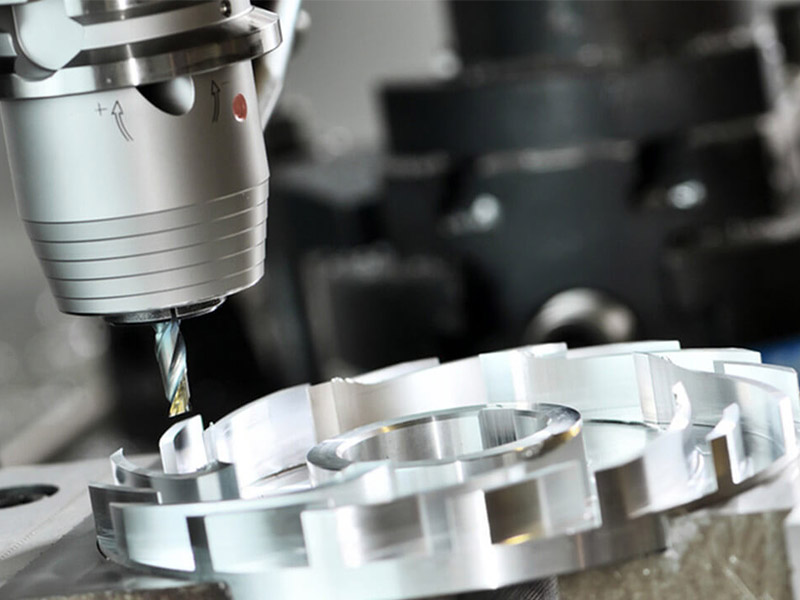CNC Milling Services: Precision and Innovation in Modern Manufacturing
CNC Milling Services: Precision and Innovation in Modern Manufacturing
Blog Article
CNC machine, which stands for Computer Numerical Control machining, has revolutionized the world of manufacturing through bringing precision effectiveness, efficiency, as well as automation to the production process. This technology uses computer-controlled machines to form, cut and make intricate pieces and pieces of components using materials like metal and plastic, wood and composites. By automating many of the procedures that used to require the intervention of a human, CNC machining has significantly increased the precision and speed of manufacturing, making the technology indispensable to industries like automotive, aerospace as well as medical, electronics, and. Computers' integration with machining machines has led to opportunities for the creation of precise and intricate components. This has improved both the performance and capacity of production.
One of the most significant advantages of CNC machine is the ability to create highly precise and intricate pieces that are almost impossible to produce using traditional manufacturing processes. CNC machines are based on digital designs, meaning that once the part's layout is programmed in the machine, it is able to be accurately reproduced and consistent. This is especially useful in fields like automotive, aerospace, or electronic manufacturing, where accuracy is vital. Furthermore, CNC machining is capable of working with a broad range of different materials, ranging from soft plastics to tough metals. This lets manufacturers make parts that are able to meet certain demands for strength, durability and resistance to heat. The wide range of CNC machining has opened up opportunities for design as well as engineering.
Alongside its accuracy, CNC machining is also acknowledged for its speed as well as its cost-effectiveness. Traditional methods of machining typically need experienced operators to modify and operate the machines this can become time-consuming and expensive. CNC machining eliminates much of the manual labour associated with the manufacturing process because machines run autonomously for extended periods once established. This enables manufacturers to improve production capacity without having to add additional labor or resources. Additionally, CNC machines are capable of performing a variety of operations using a single configuration which reduces the requirement to transfer parts and reposition them to save time, and decreases the possibility of mistakes. The automation results in quicker manufacturing cycles as well as lower cost per part, making CNC manufacturing an appealing choice for those trying to optimize the manufacturing process.
A further benefit of CNC machining is its efficiency. With the help of automation, machining the manufacturers are able to significantly cut the time it takes to produce parts, leading to a faster cycle of production as well as reduced costs. As CNC machines work 24/7 with minimal human supervision it is possible to increase production without losing quality. The level of automation minimizes the risk of human error by ensuring that each part produced meets exactly the specifications specified in the digital design. Furthermore, CNC machining allows for "lights-out" manufacturing, where the machines can continue operating even after employees have gone home, further boosting productivity and cutting down on labor costs. To acquire further information please visit https://www.premiumparts.com/services/cnc-machining
CNC machine is also renowned as a versatile machine in terms of the kinds of materials it's able to use. It can handle everything from aluminum, steel, and titanium to plastics wood and even the composites that CNC machinery can utilize a broad range of components for diverse applications. This flexibility can make CNC machining suitable for a range of different industries and each one with its own specific specifications for materials. In the case of medical, for instance, this industry typically needs components of biocompatible substances like titanium, while the automotive sector uses durable metals, such as steel, for engines and other components. No matter what the materials, CNC machines can deliver accurate cuts with consistent results, ensuring that the final product is of the requirements for performance and longevity requirements.
The future of CNC machine machining is exciting, thanks to technological advances constantly expanding the limits of what these machines can attain. As CNC machines become increasingly sophisticated, they're increasing integrated with other technologies like robots and 3D printing in order to develop hybrid manufacturing techniques that blend the benefits that come from a range of methods. Furthermore, the rise of smart manufacturing and technology like the Industrial Internet of Things (IIoT) allows for greater connectivity and automation in CNC machining, allowing the machines to interact with each other and adjust operations according to sensors' data. As new technologies continue to advance, CNC machining will remain crucial in modern manufacturing, providing even greater precision efficiency, speed, and portability for the coming generations of goods.